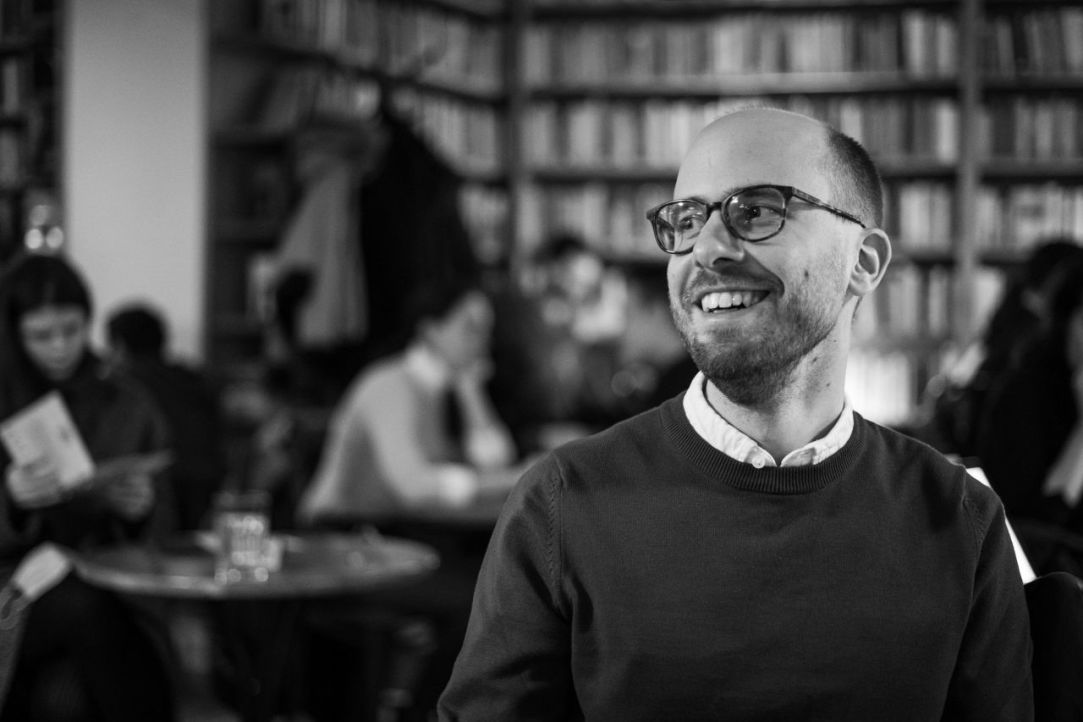¬ЂHSE is a demanding but at the same time rewarding university¬ї. Andras Gal speaks about his teaching experience in Higher School of Economics and the curiosity of the students
Both the ¬ЂPolitical Science and World Politics¬ї programme and the ¬ЂComparative Politics of Eurasia¬ї programme offer a lot of international experience to their students. Probably the most precious of all вАФ the opportunity to receive knowledge from the foreign instructors from all over the world. In the interview, assistant professor¬†Andras Gal shares his thought on the educational process in HSE and gives some easy recommendations for the future students to follow.

The experience and the thoughts on the further development of the career
My PhD was about constitutional courts and ethnic power-sharing democracies. Originally I was interested in courts and constitutions, and then I found divided societies and ethnic politics on the way. I am very content with this discovery, as this research area is both academically vibrant and intellectually fascinating.
At the Higher School of Economics I am teaching classes belonging to three clusters. The first one which is the closest to my interest - constitutionalism and political theory. Furthermore, I also teach several courses on comparative politics and the politics of European countries. Last but not least I teach the Research methods in general, and with the focus on qualitative methods, mostly case studies. 
I defended my PhD thesis a year ago, so I am still in the process of developing various ideas and research spin-offs into publications - both on the level of individual papers and a comprehensive book project. Furthermore, as a researcher in the early stage of his career, I also work a lot on developing my teaching portfolio, which involves the development of already taught courses as well as the design of new ones. 
In the latter regard, my most exciting ongoing project is the development of the second-year research seminar that will focus on case study research designs and techniques. Again, the designing process involves reaching out to my professors from my MA and PhD studies too, bringing even more external impulses to the study programme. 
How the students in HSE are different from the students in other universities and why HSE is an interesting combination of two different approaches
HSE is a demanding but at the same time rewarding context. I found HSE students very curious, interested, and of course hard-working. For instance, when IвАЩve read the feedbacks from external reviewers to BA theses of our students, reviewers from highly ranked European universities were absolutely positive and impressed - a sign of HSE students doing high quality work even when measured with international standards. This highly competitive setting also makes the assessment process a little bit less relaxed, but of course everything comes with certain trade-offs.
Otherwise, the class sizes are standard. As a student I was enrolled in two different universities, then I spent some time in exchange programmes in four other institutions, where I have attended both smaller- and bigger-sized classes compared to HSE. I am pretty impressed also by the relaxed class atmosphere in terms of students being willing and able to contribute and to speak up frequently. These opportunities for dialogue in the classroom are absolutely vital to our vision of social science education. Finally, it is nice to be able to have informal communication between students and instructors - though in this regard I was trying to introduce some traditions brought from my home country. In Hungary after the course is finished, usually it is totally fine to go out at the bar together. 
All in all, here in HSE there is an interesting combination of the traditions that we have both in Hungary and Russia (as well as the rest of continental Europe), but also Anglo-Saxon materials and methods, as well as an openness to the rest of the world. 
I have never been a student in HSE but I have the impression that international students are having a good time here. Obviously, if you are a foreign scholar, then the main question I guess is whether you manage to find common platforms with the local research communities. For scholars who specialize in Russia and Post-Soviet states that must be an extremely fascinating and vibrant place. People who do not belong to this set, like myself, can also find a use in cooperation that would probably just take more effort and a lot of social skills. Saint-Petersburg is a city which is large enough and the fact that Moscow is really close means that living in both of these metropolitan cities allows you to connect with a lot of different minds. 
Three recommendations for the future students: 
-
Do not underestimate friendships and social connections in the university; such platforms for discussion and exchange of ideas is crucial in oneвАЩs development as an intellectual (and not only a specialist). Although it is great to discuss readings in class, quite often the things that will boost your intellectually might lay beyond the class content. Finally, go after the big questions that matter, even if you feel like you may not find the final answers.
-
As someone who did two Masters and a PhD, I have realized how important it is for your mental health to read something except your mandatory readings. So, keep reading fictions, keep reading for fun. If I have to highlight a personal favorite, I would recommend Orhan Pamuk, a Turkish novelist who won the Nobel prize in literature in 2006. His recurring topics resonate a lot with my Eastern European experience - for instance, the East and West, traditions and cosmopolitanism, or authenticity versus a feeling of provincialism.
-
If you are not originally from Saint-Petersburg, make sure that youвАЩll see all the museums and other sights in the city. I have already spent two and a half years here and still have not seen everything.¬†

